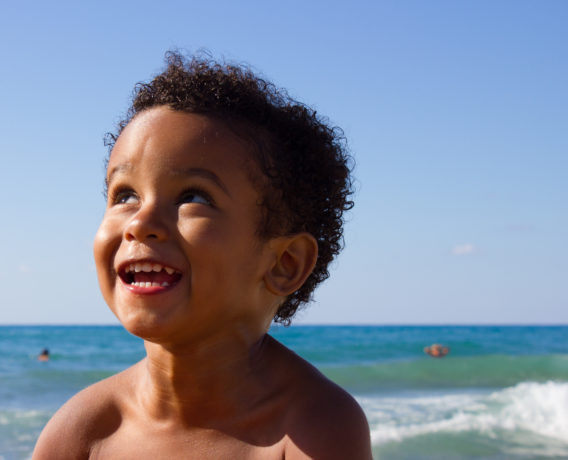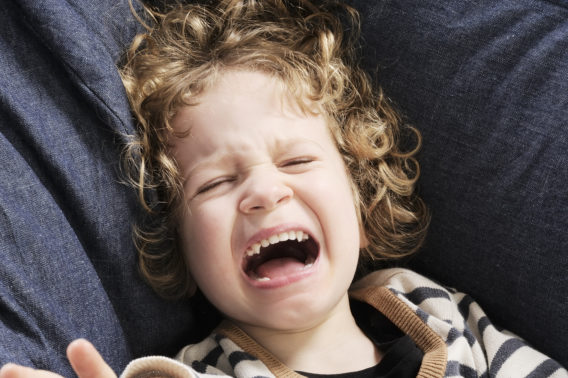
Psychologist Paul Eckmann did years of cross-cultural studies and reported that facial expressions are the same around the world, and mean the same thing across cultures. This is because we all have the same facial muscles and instincts to form (and understand) facial expressions. Babies soon recognise that someone is frightened, without needing to have it explained to them. Also, their own facial expressions change their own physiology and feedback and amplify their own emotions. So when we smile, the muscles used for smiling release ‘feel-good’ hormones in our brain. When we pull a fearful face or a ‘disgust’ face our brain responds as if we are feeling those emotions. Our facial expressions and emotions are inextricably linked. This ability to recognise emotions in other people is impaired in toddlers on the autism disorder spectrum.
Empathy can be improved and developed. If you would like to help your toddler develop his empathy from an early age, be open about describing your emotions (which backs up what his is seeing in your face) and acknowledging his feelings – e.g., ‘I know you’re really sad that we had to leave the park and I’m sorry but we will come back after lunch.’
By 15 months
By 18 months
By 30 months
By 36 months

The toddler years may seem a bit early to be thinking about emotional development problems because toddlers experience a rollercoaster of emotions daily, which makes them an unpredictable study. Sometimes it seems that ‘emotional problems’ almost define toddlerhood.
Toddlers need help from their parents to regulate their emotions. Fundamental to their emotional development and emotional regulation is their bond with their parents or caregivers. Toddlers need a loving, consistent and sensitive parent to act as a secure base from which they can explore the external world and their own internal world of thoughts and feelings. If your toddler is securely attached to you (as around 70 per cent of toddlers are), he will be more likely to develop independence and emotional resilience as he grows up. For this to happen toddlers need to feel unconditionally loved.
If you are concerned about your bond with your toddler (especially if you had a tough time after the birth and suffered from postnatal depression) there are lots of things you can do. Your toddler loves you unconditionally and doesn’t judge you. If you’re worried, do get support from your health visitor or GP who will be able to tell you about local services that support parents with PND or severe anxiety, for example. Keep it simple. You don’t have to be Supermum or Superdad. Just spend lots of time chatting face-to-face with your child, sharing books and cuddling. All these activities strengthen your bond and help to boost your confidence and happiness as well as that of your toddler.
In terms of development, there are emotional developmental milestones that toddlers achieve, as well as some abnormal behaviours that might signal a problem. If you’re concerned that your toddler seems very emotionally withdrawn speak to your doctor, who may refer him to your local child development team to be assessed. Similarly, if your toddler seems to act out a lot and display aggression, talk to his doctor or health visitor and they will be able to assess your toddler in this and other overlapping areas of development and behaviour.
Toddlers are only just beginning to reflect on their emotions. Even before your toddler is able to articulate how he feels, it can help him to be mindful of and recognise his emotions by talking about events of the day and how he felt during it. Print out some classic emojis of happy, sad, angry, surprised and scared faces. Then you and your toddler can point to the emojis that best describe how you both feel. This helps your toddler to recognise and notice his emotions, which is a central part of mindfulness.
Eckman (2006) ‘Darwin and Facial Expression: A Century of Research in Review’. Academic Press